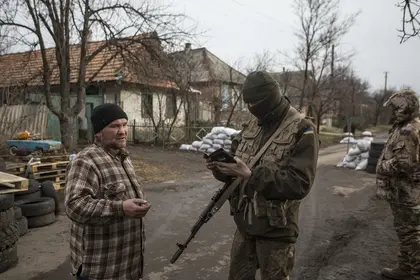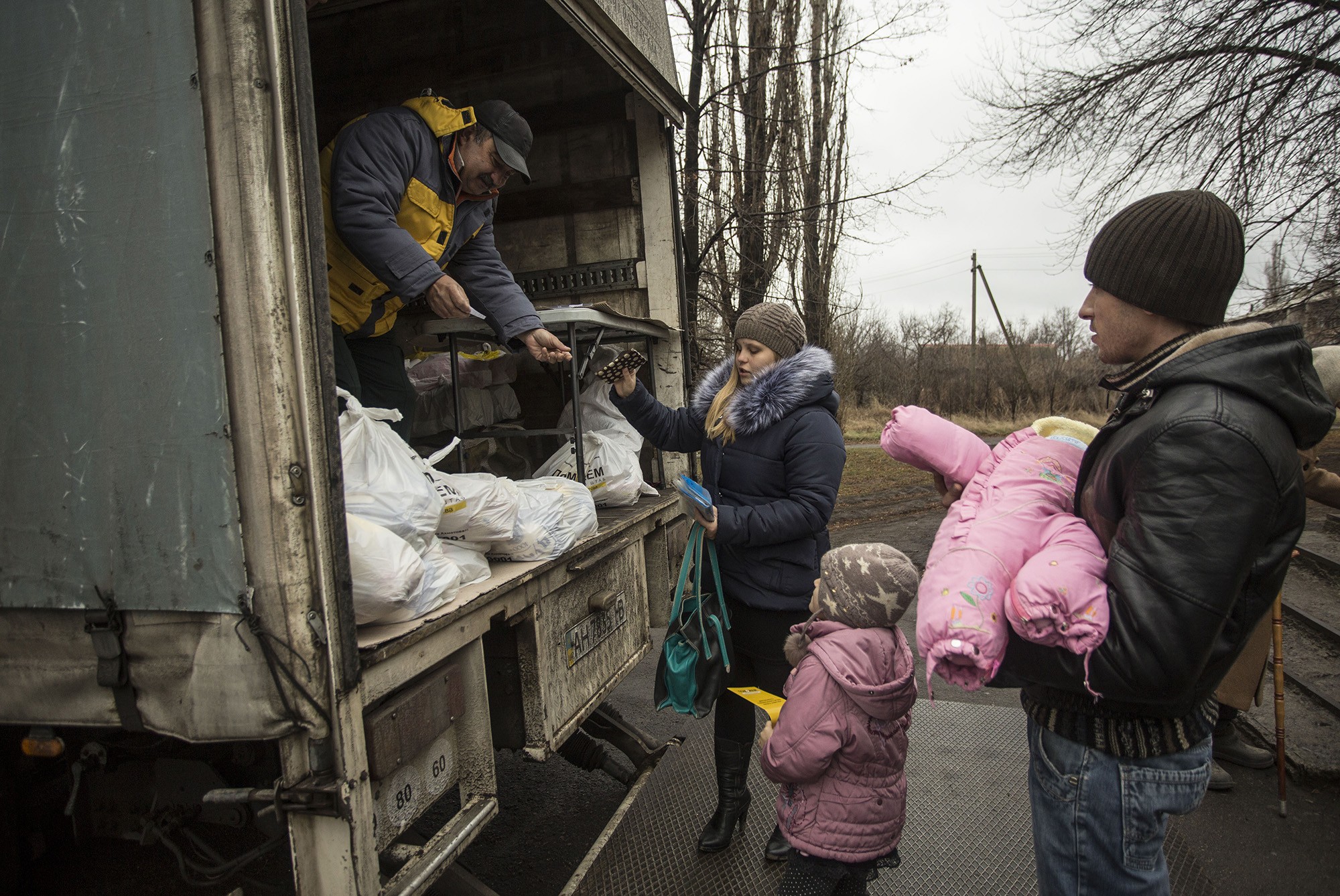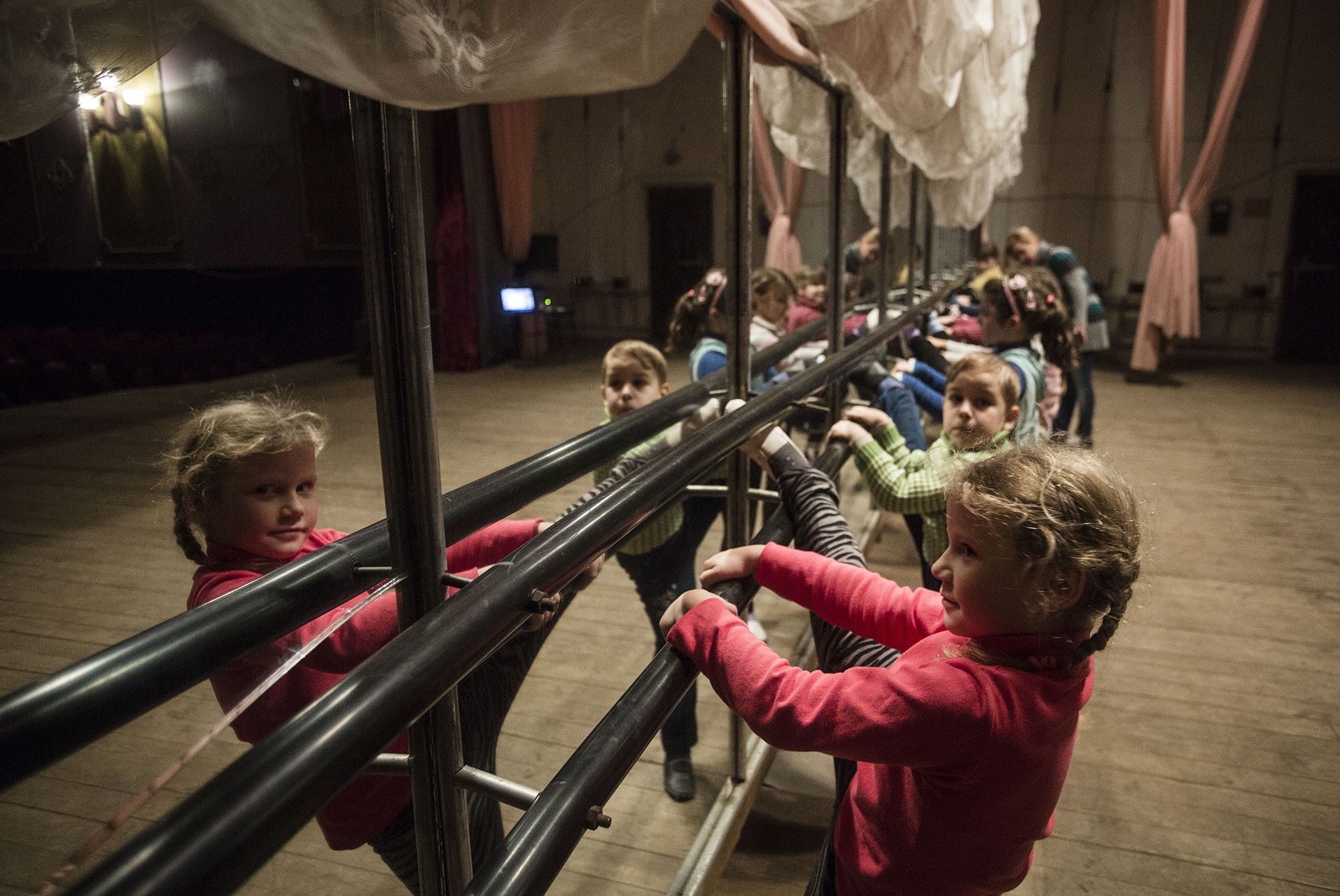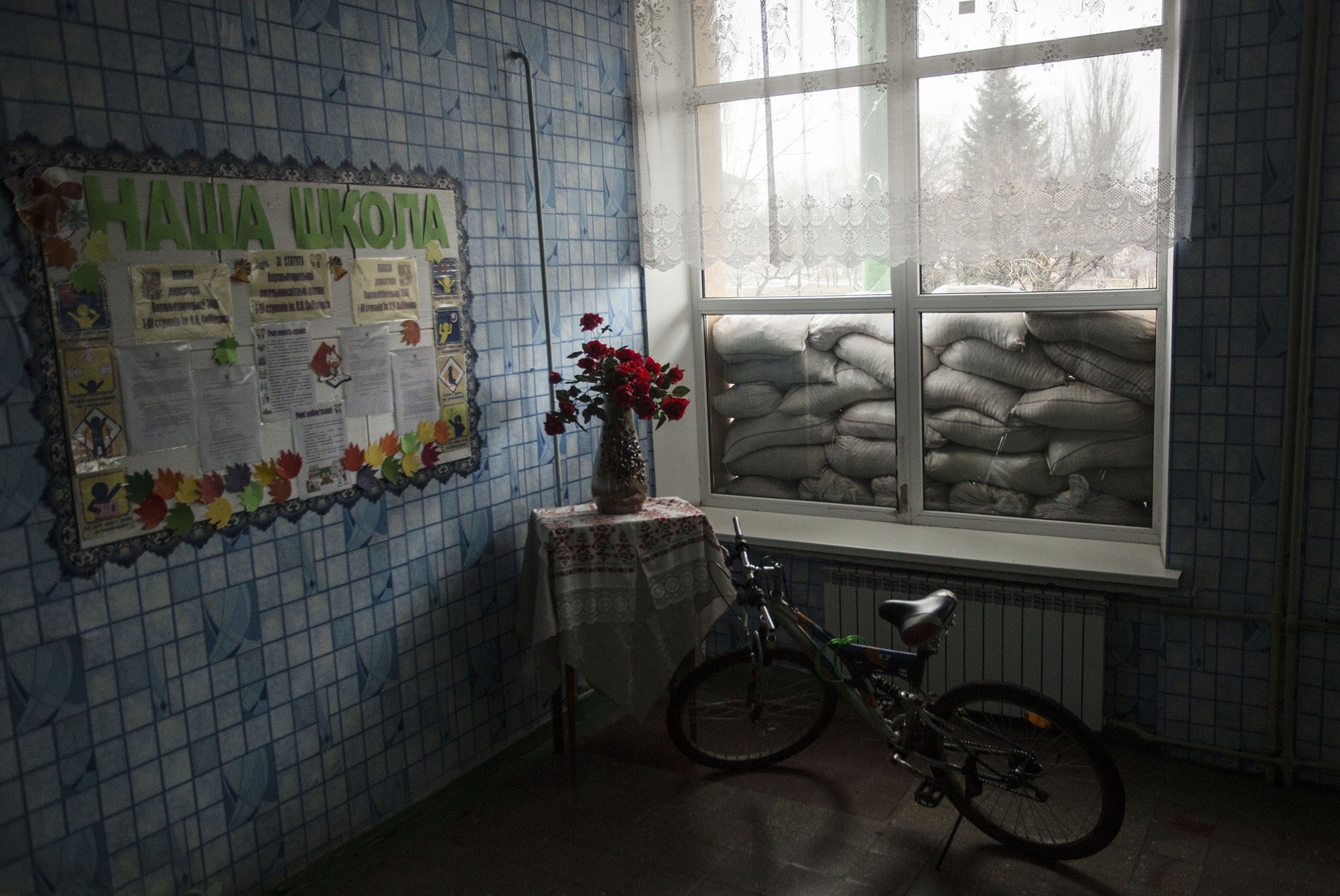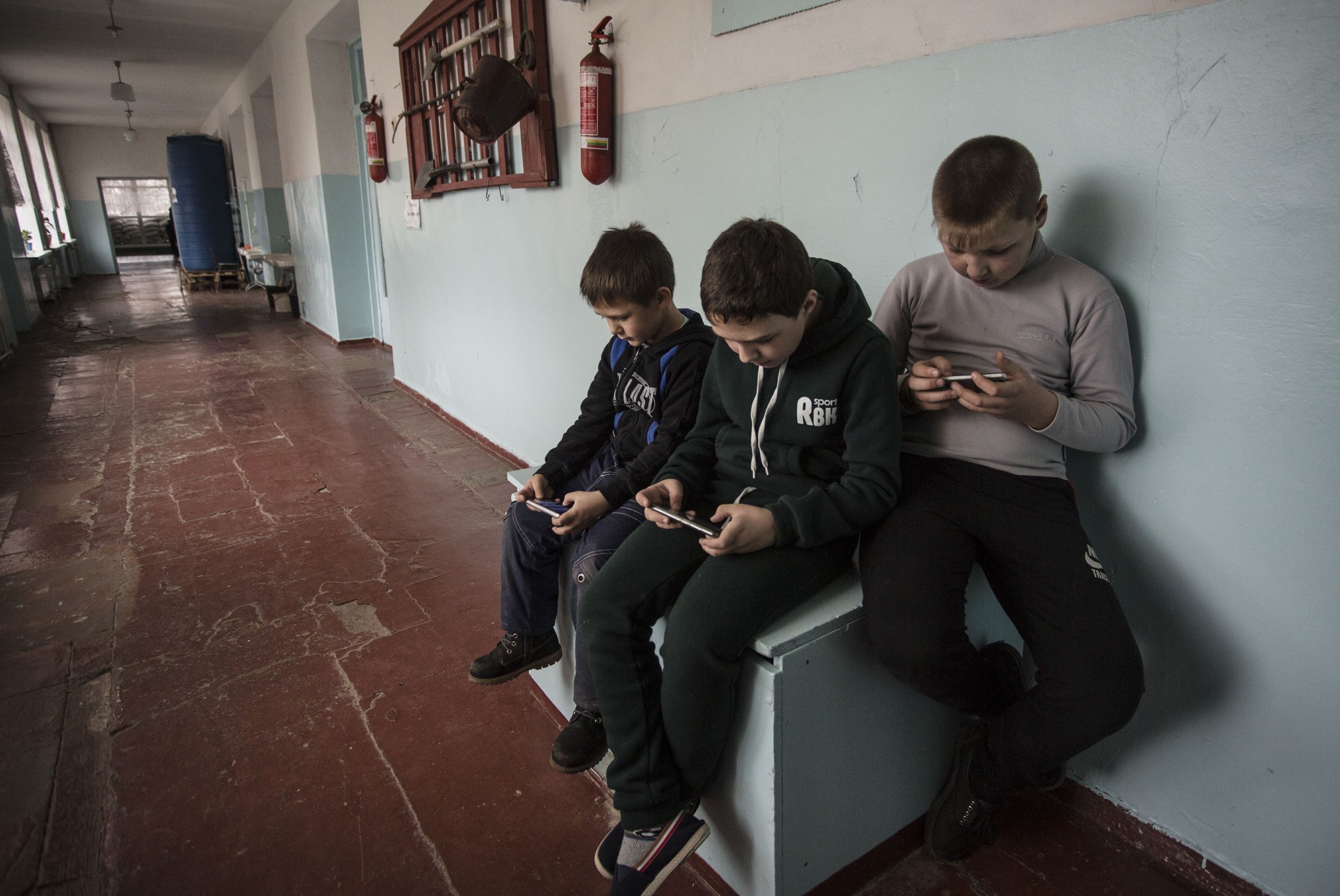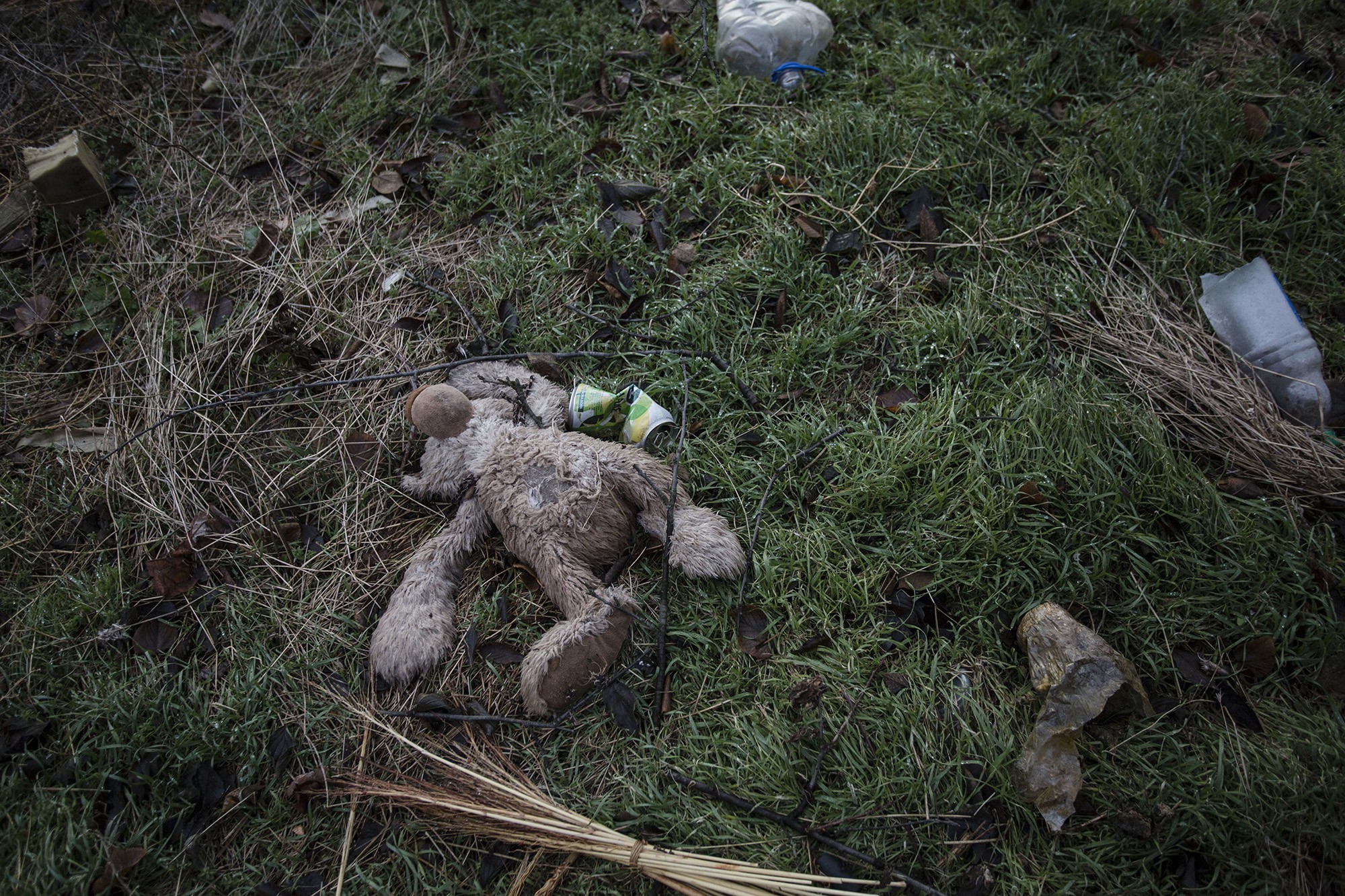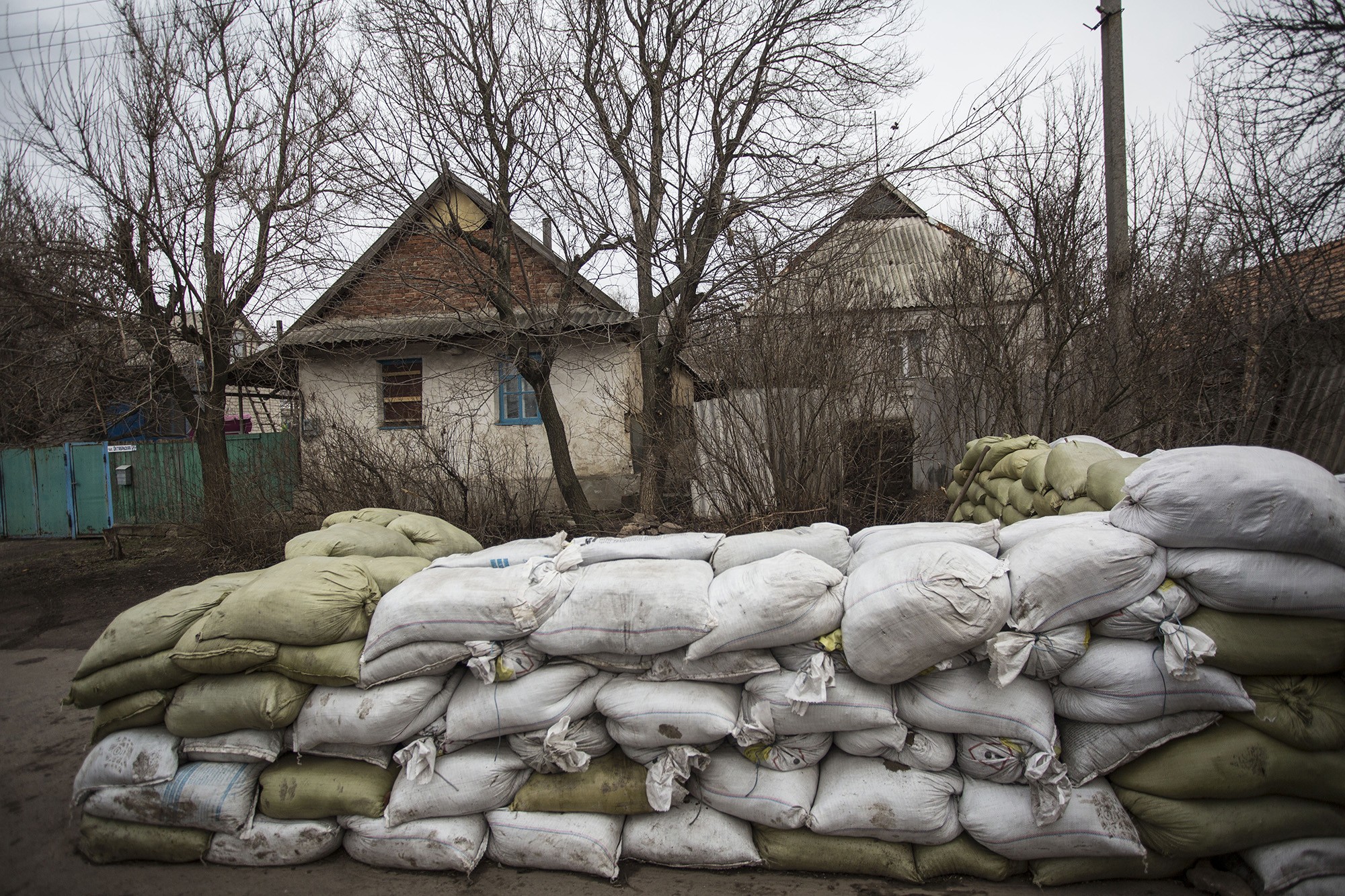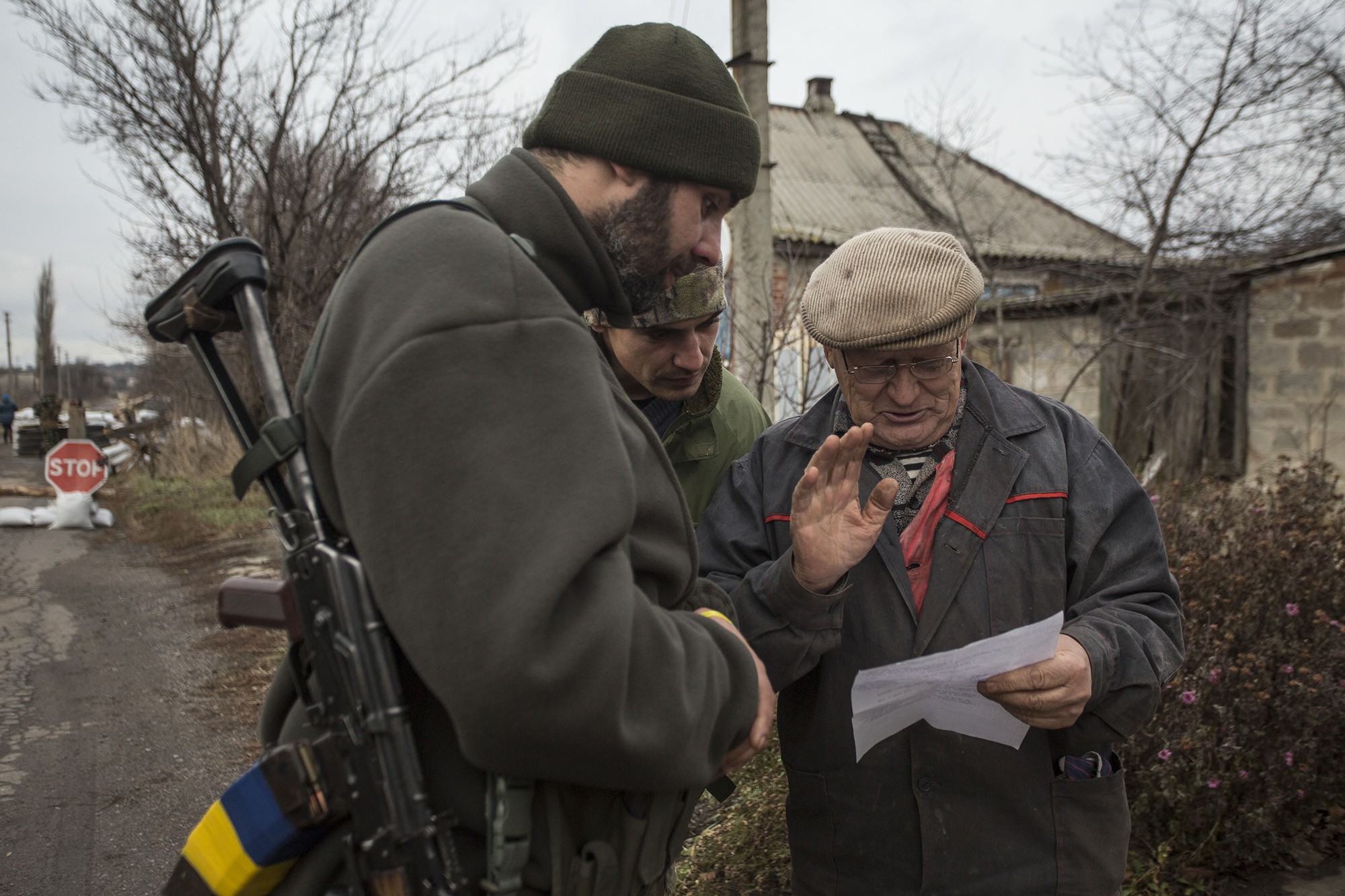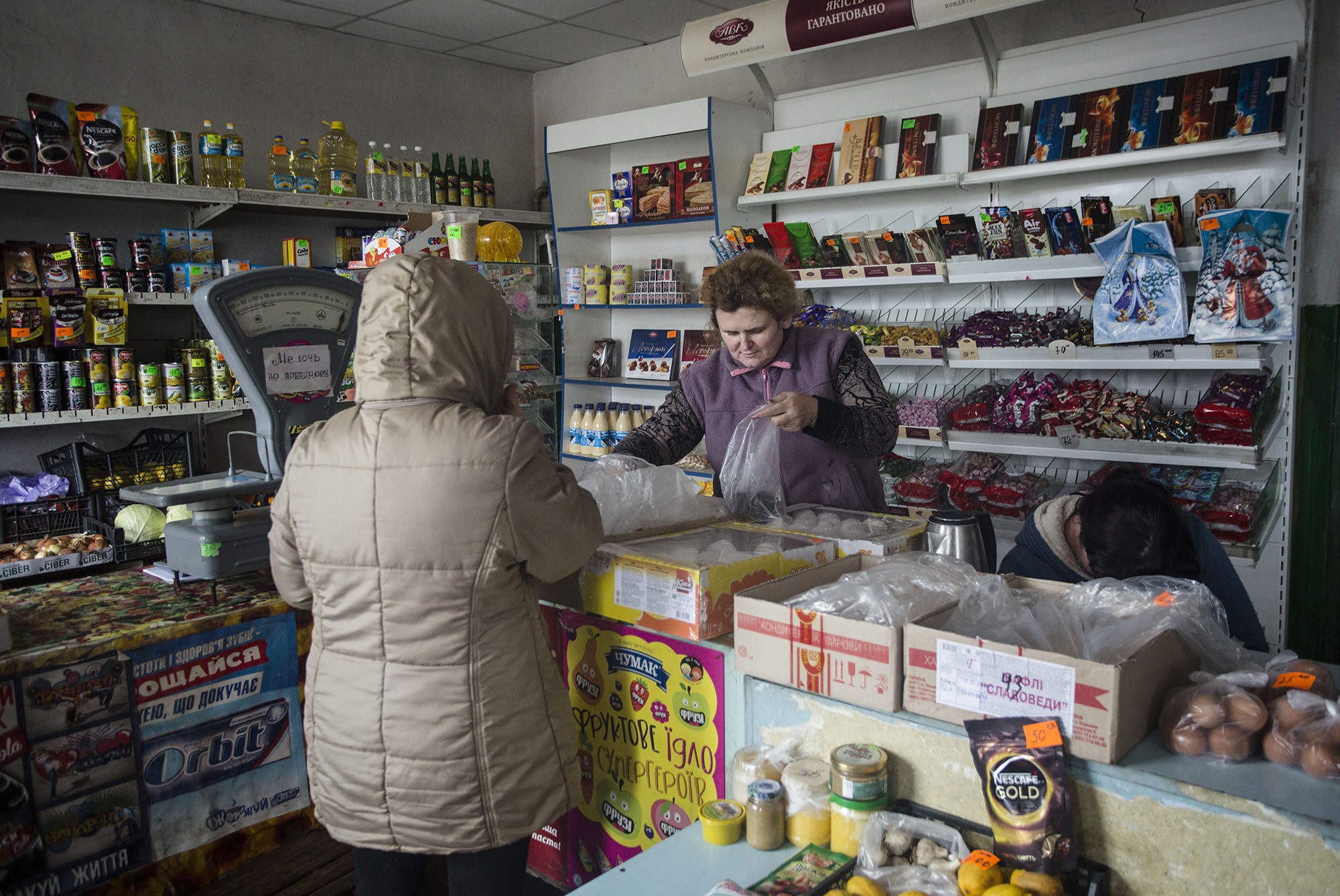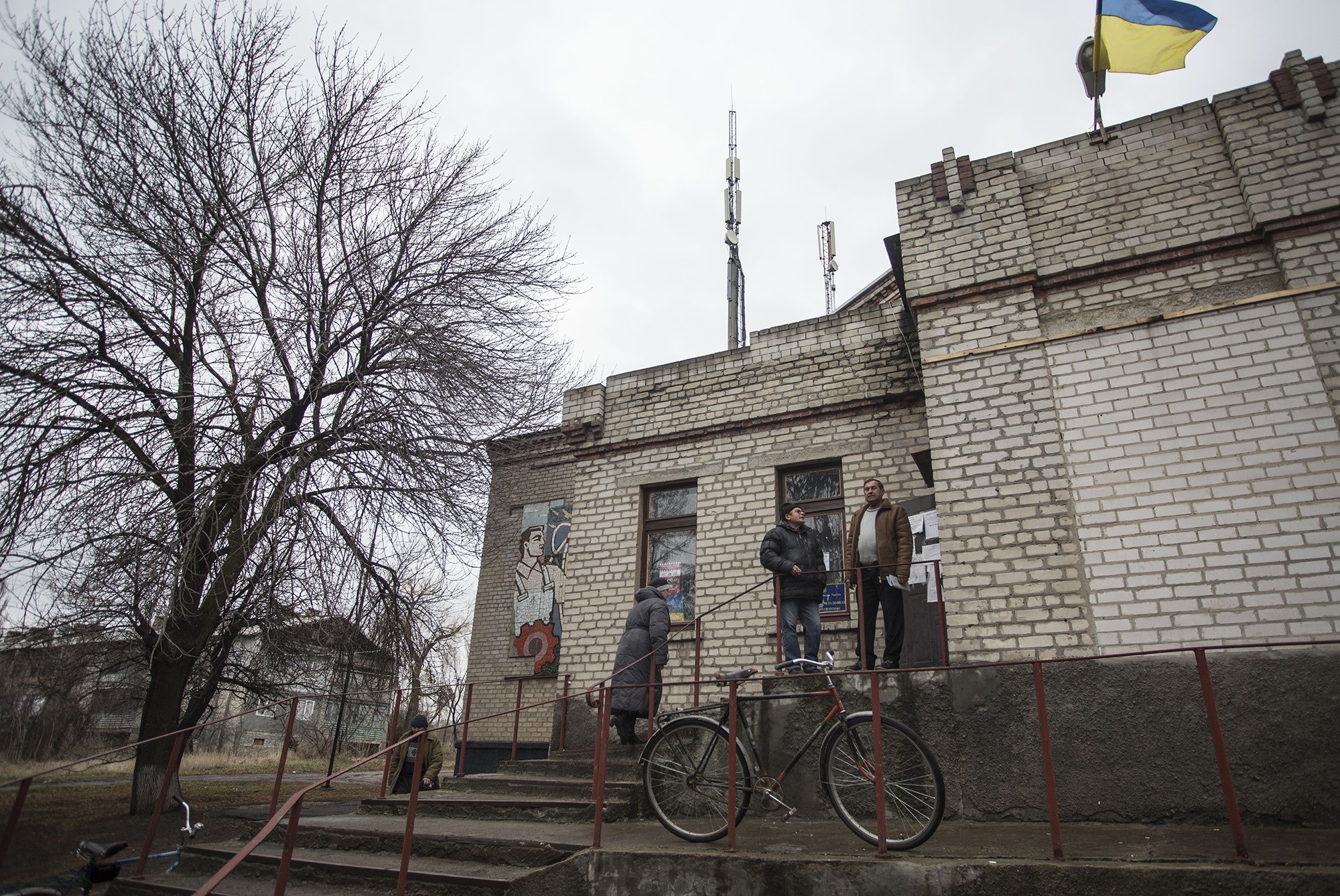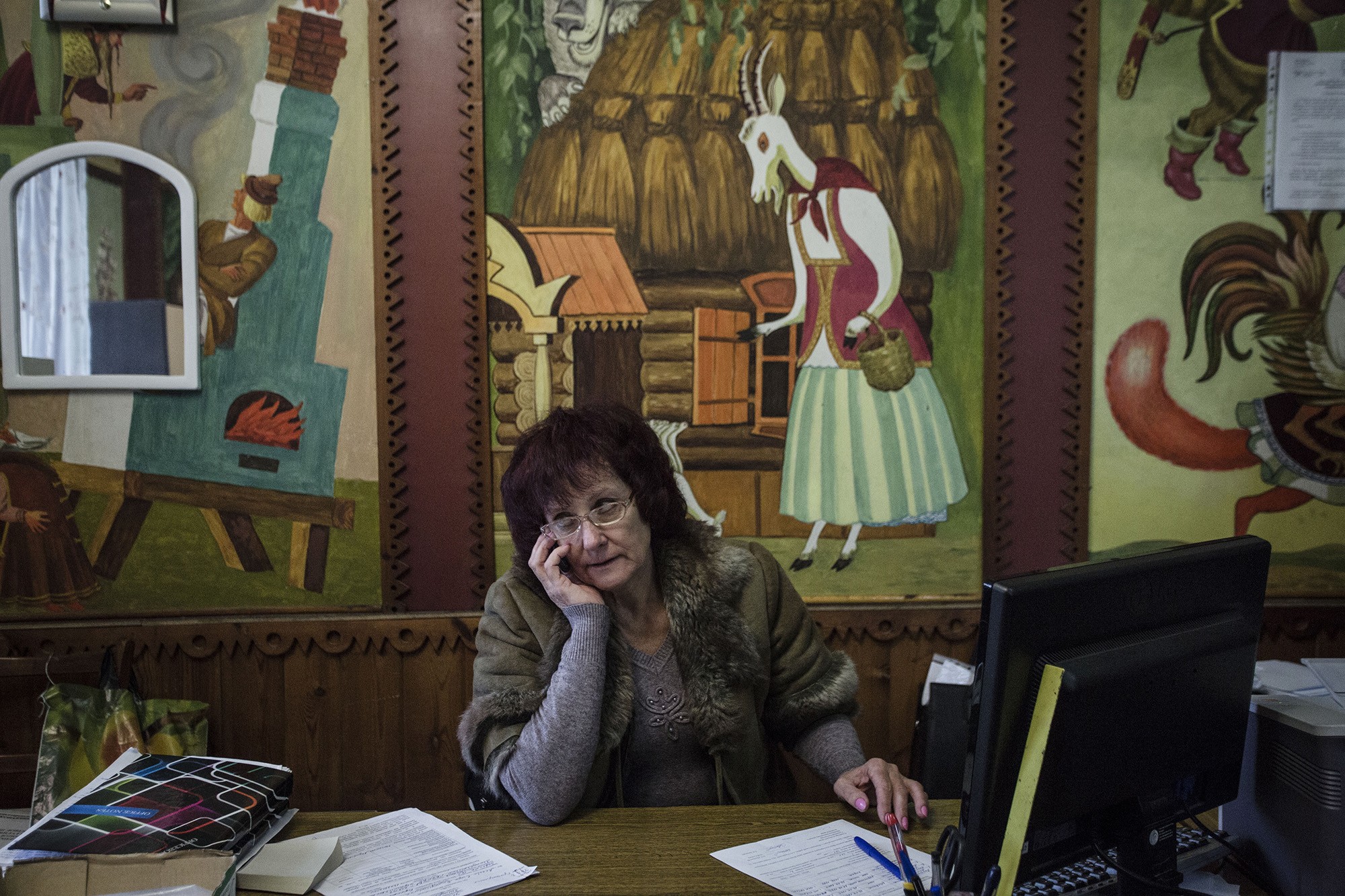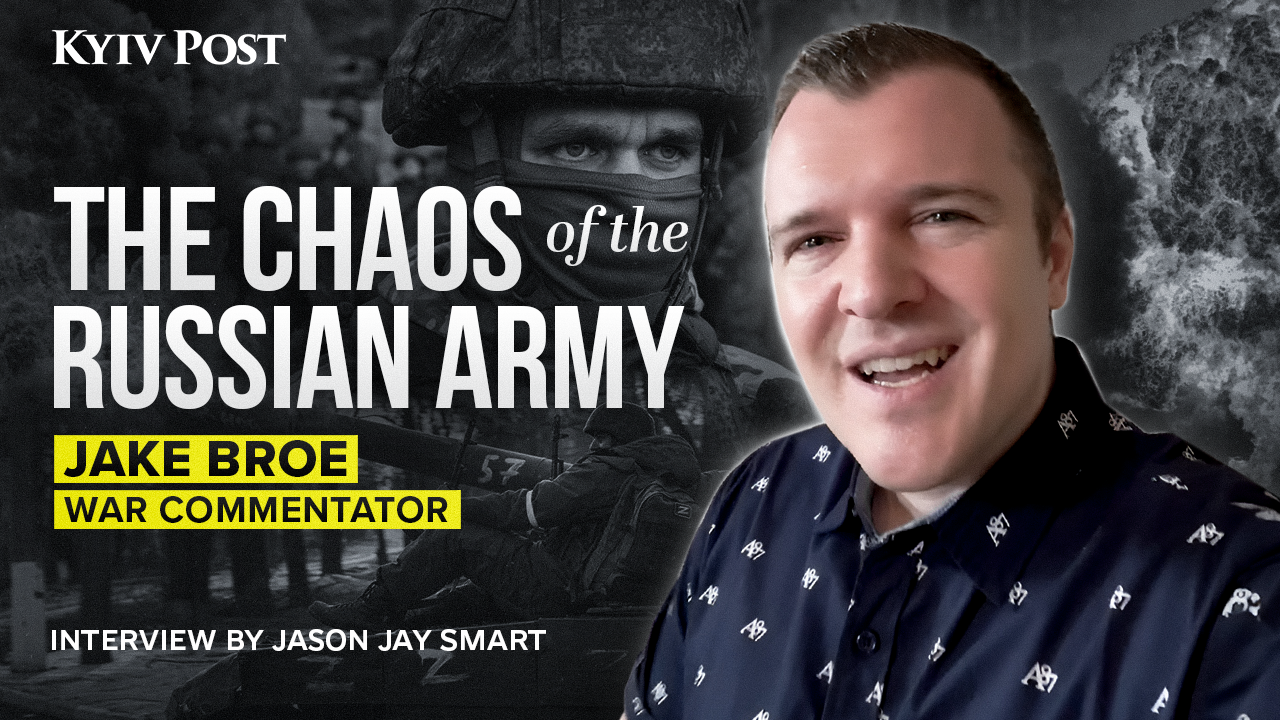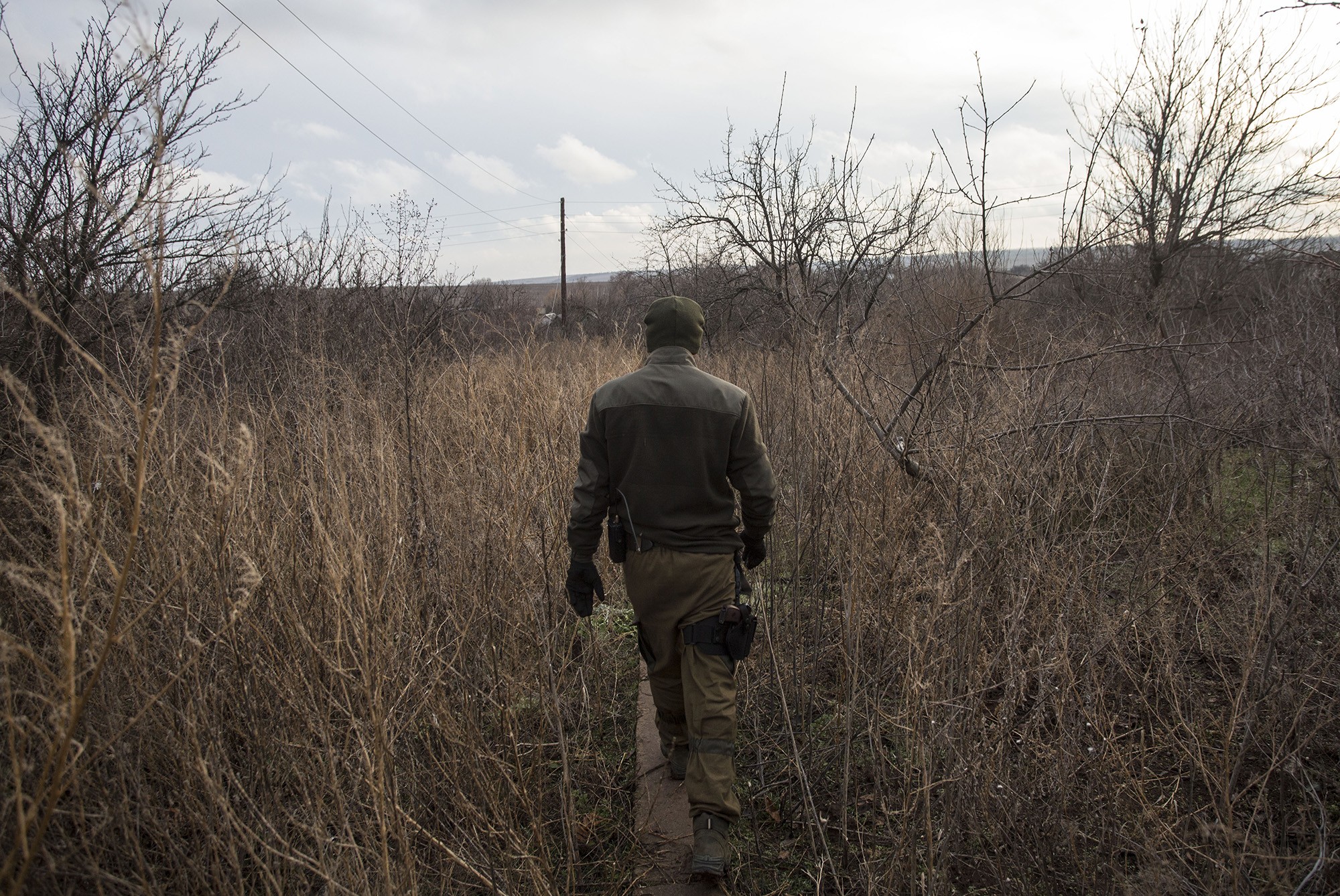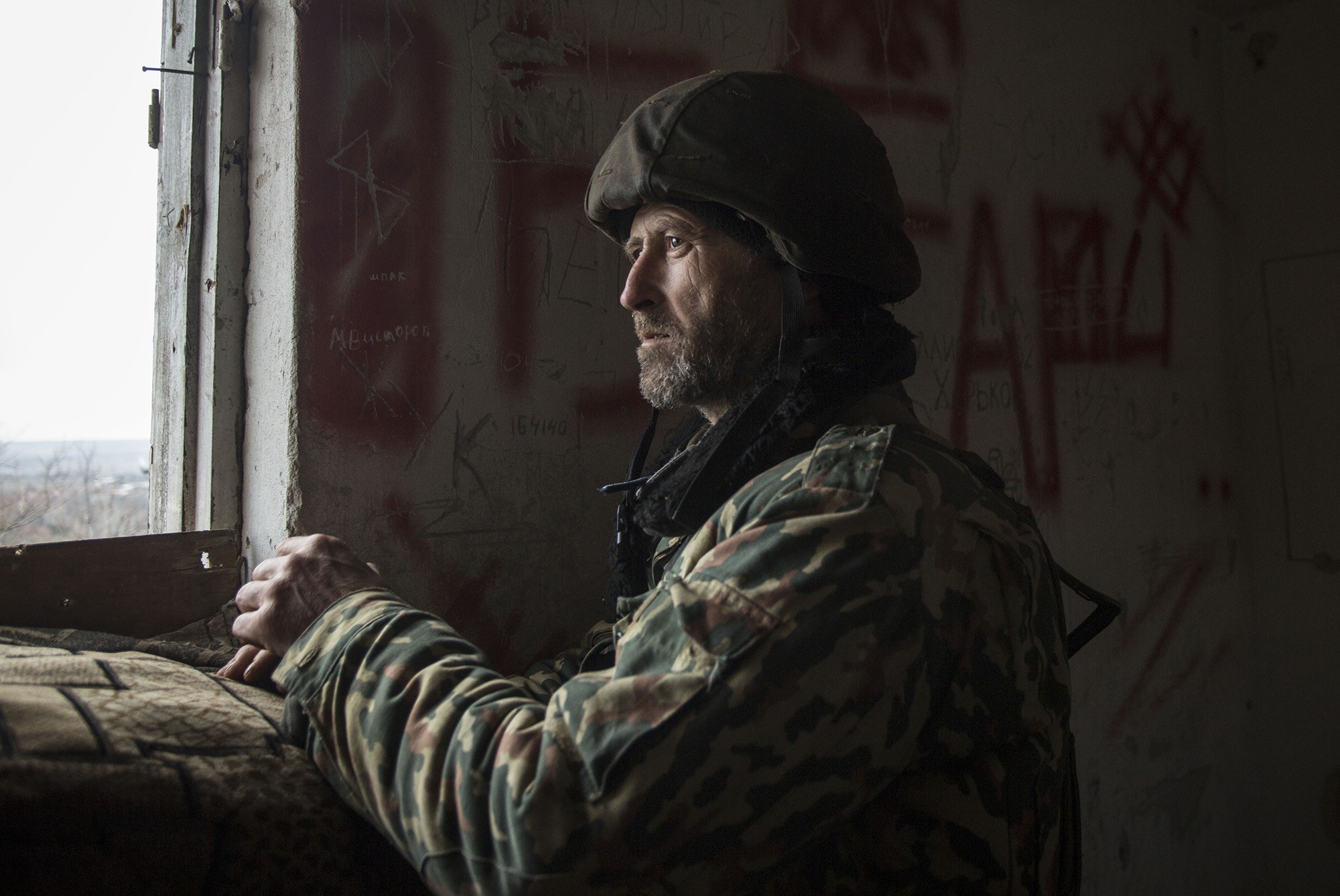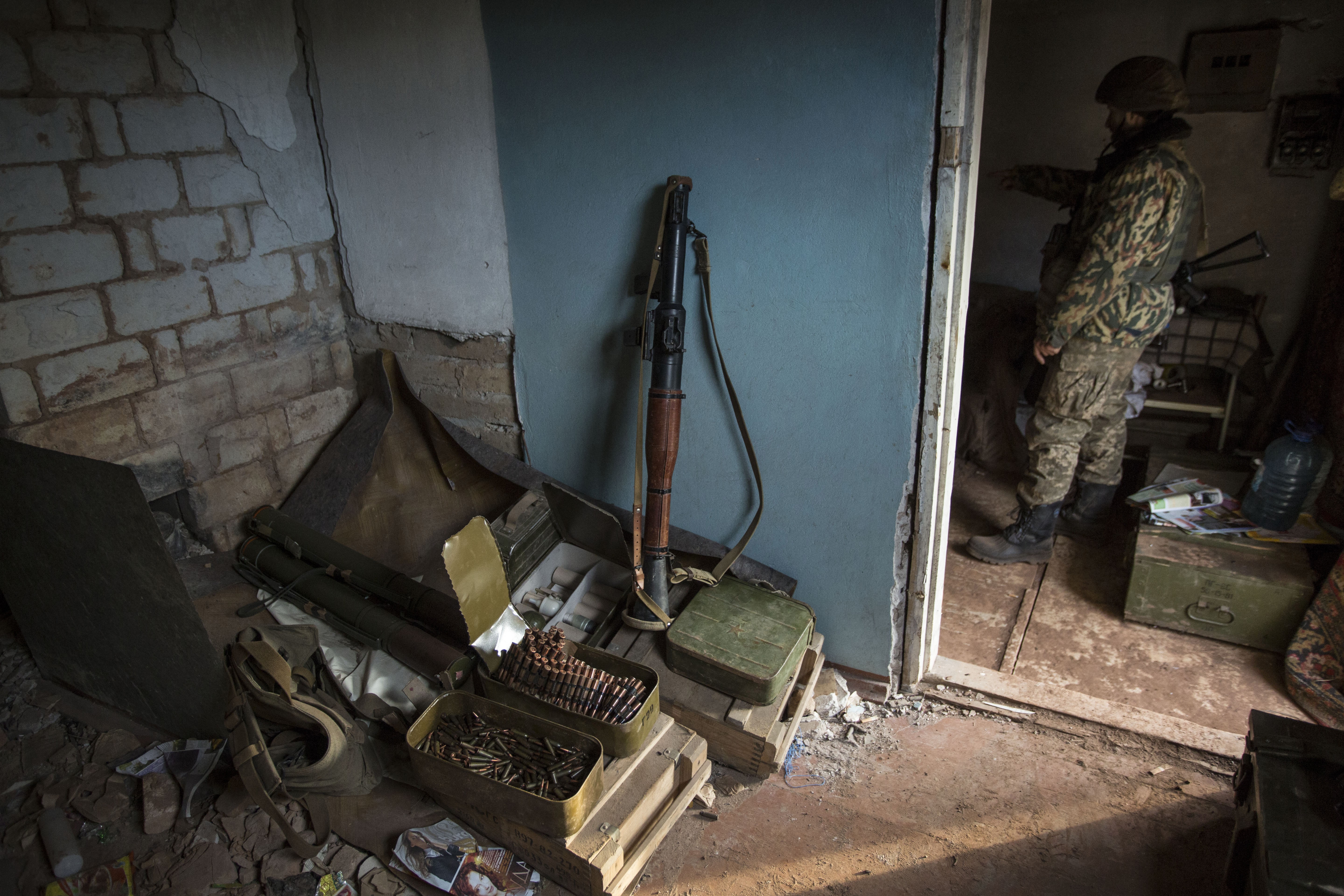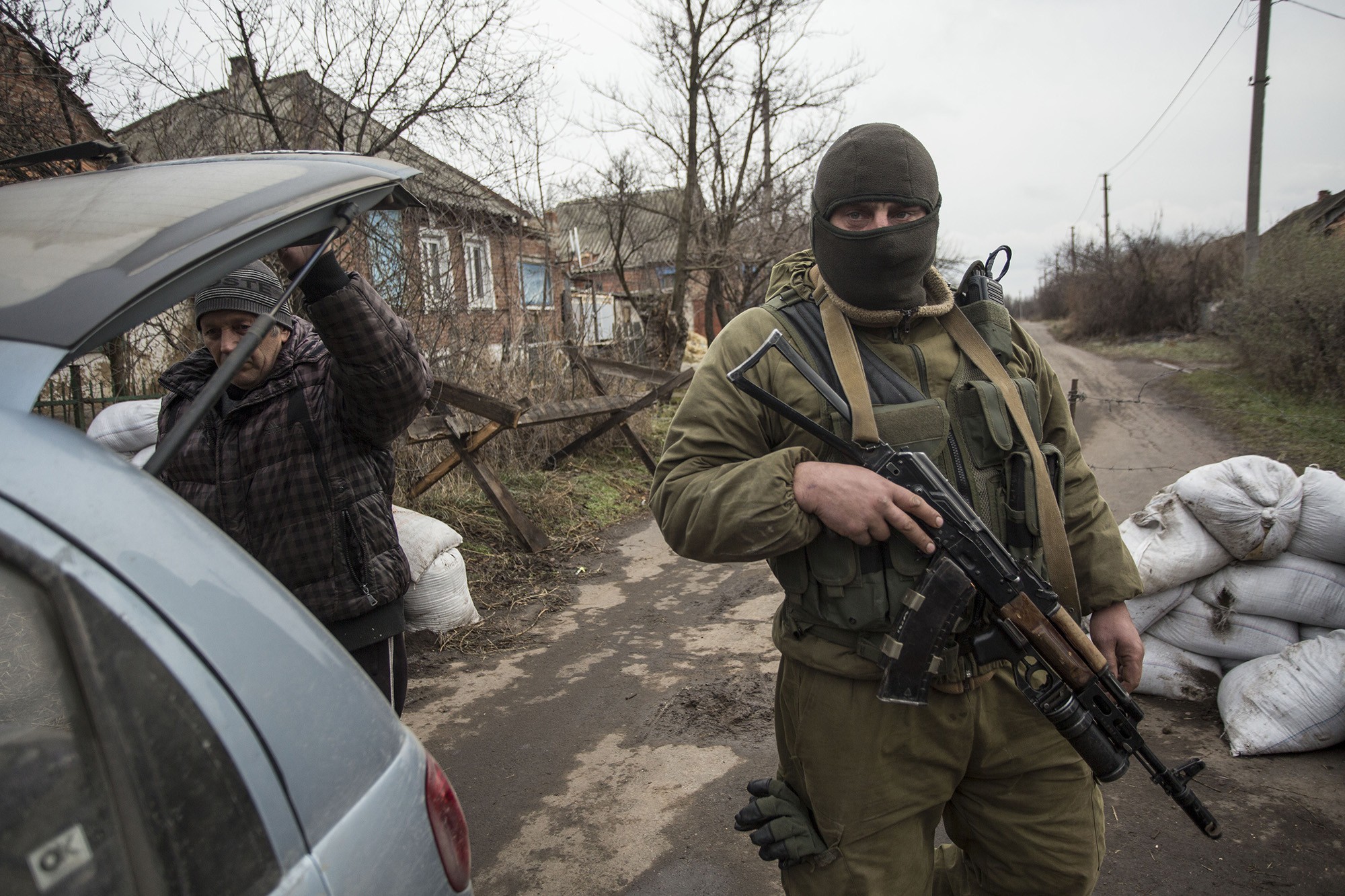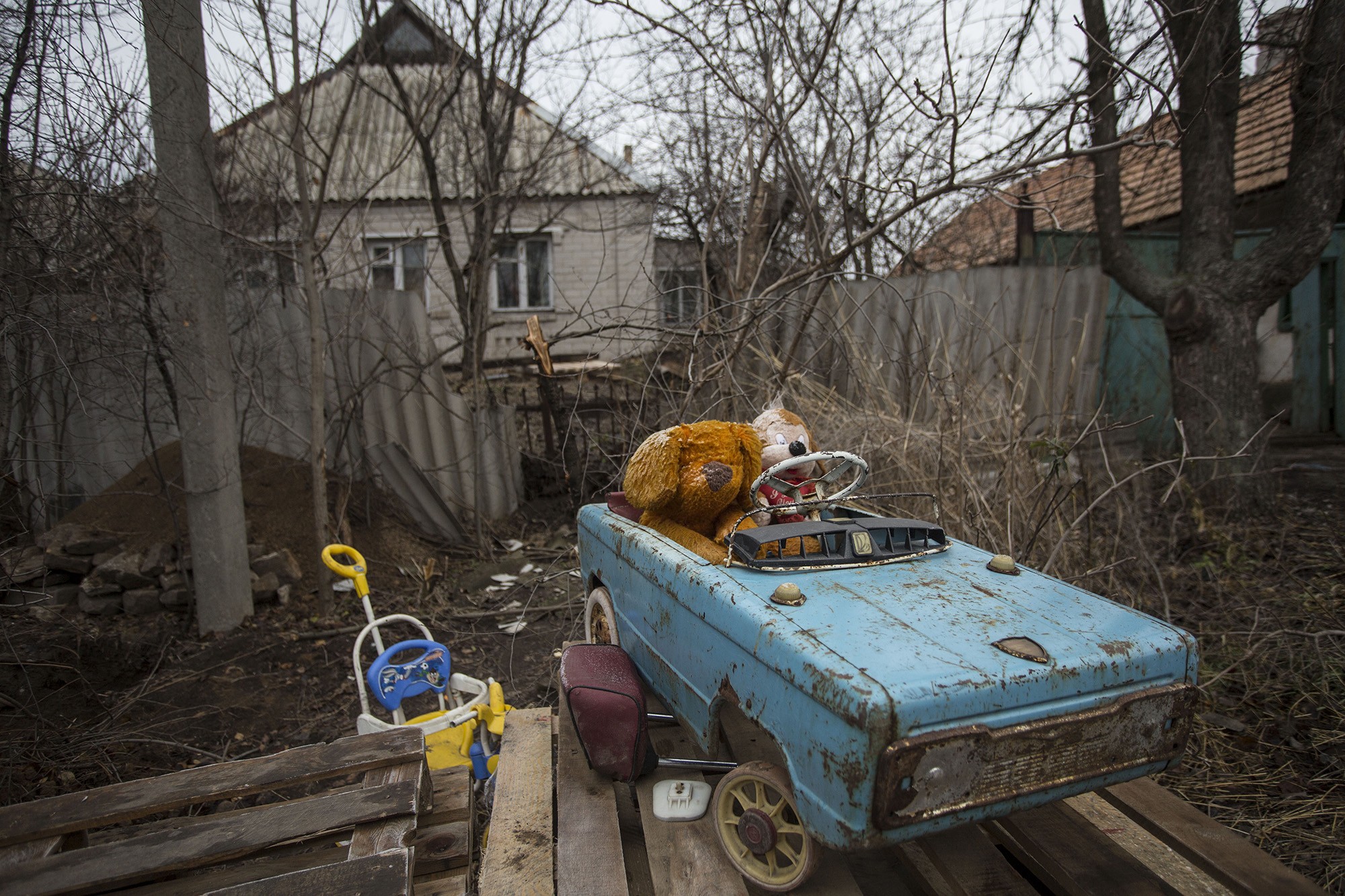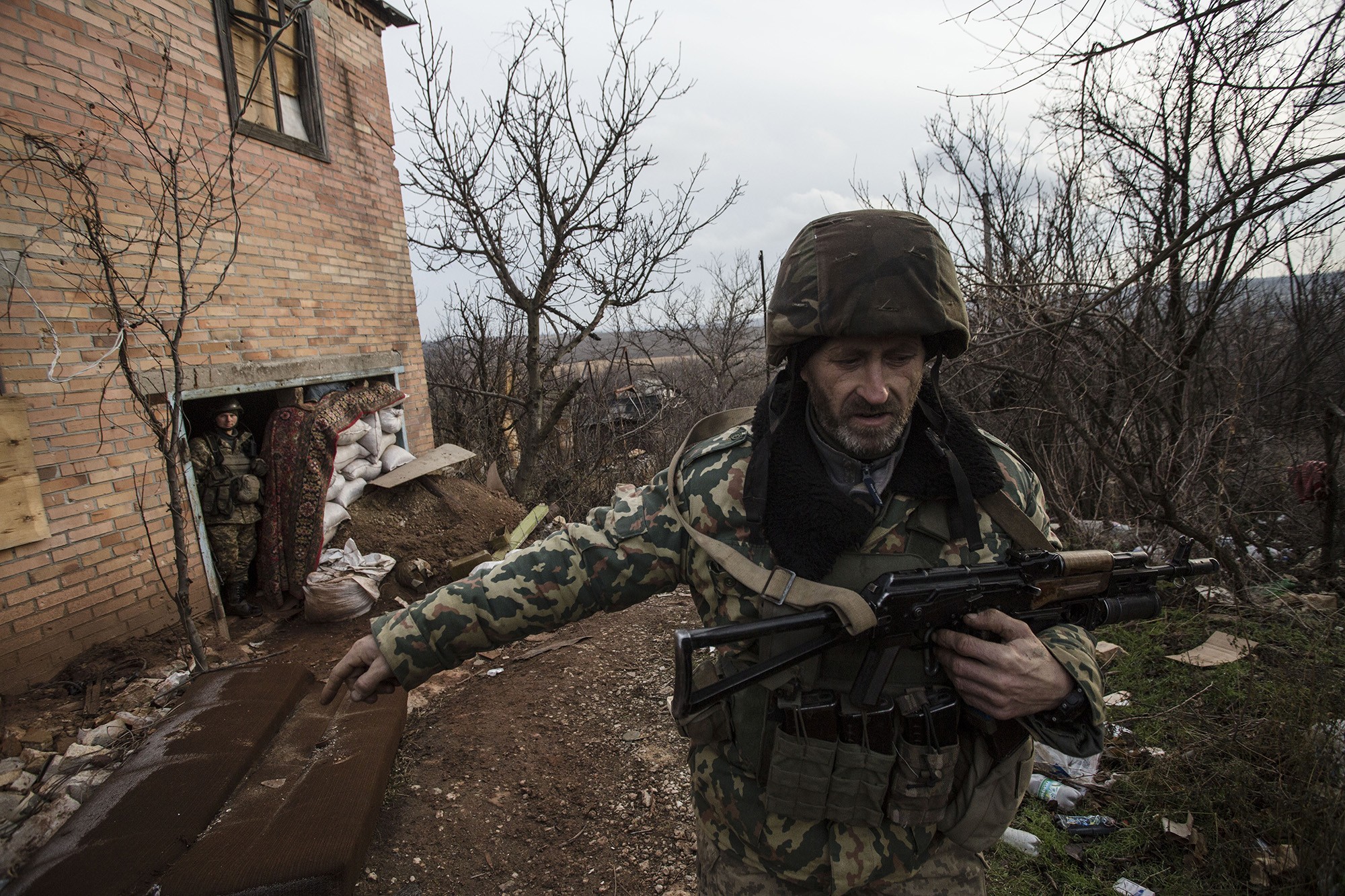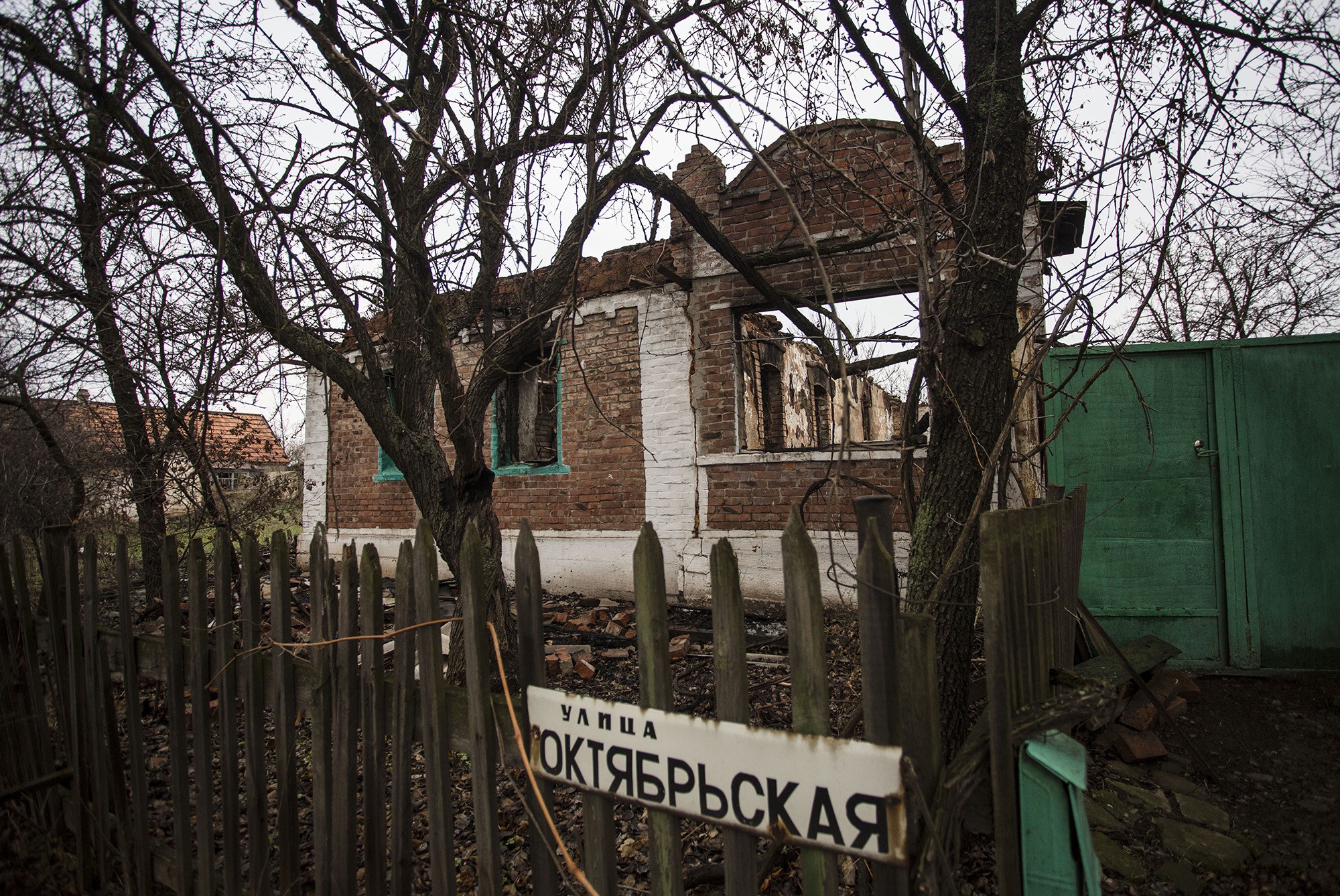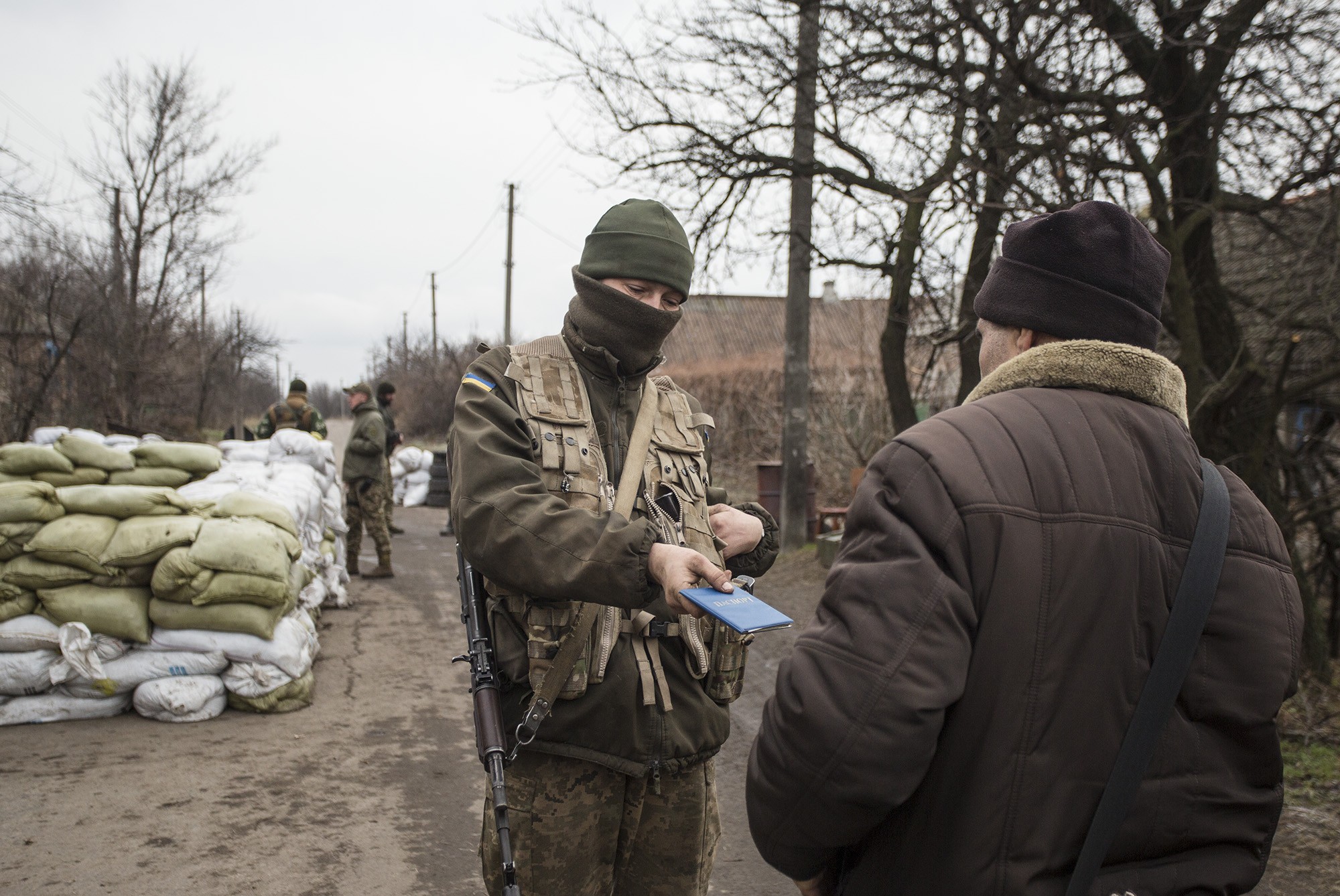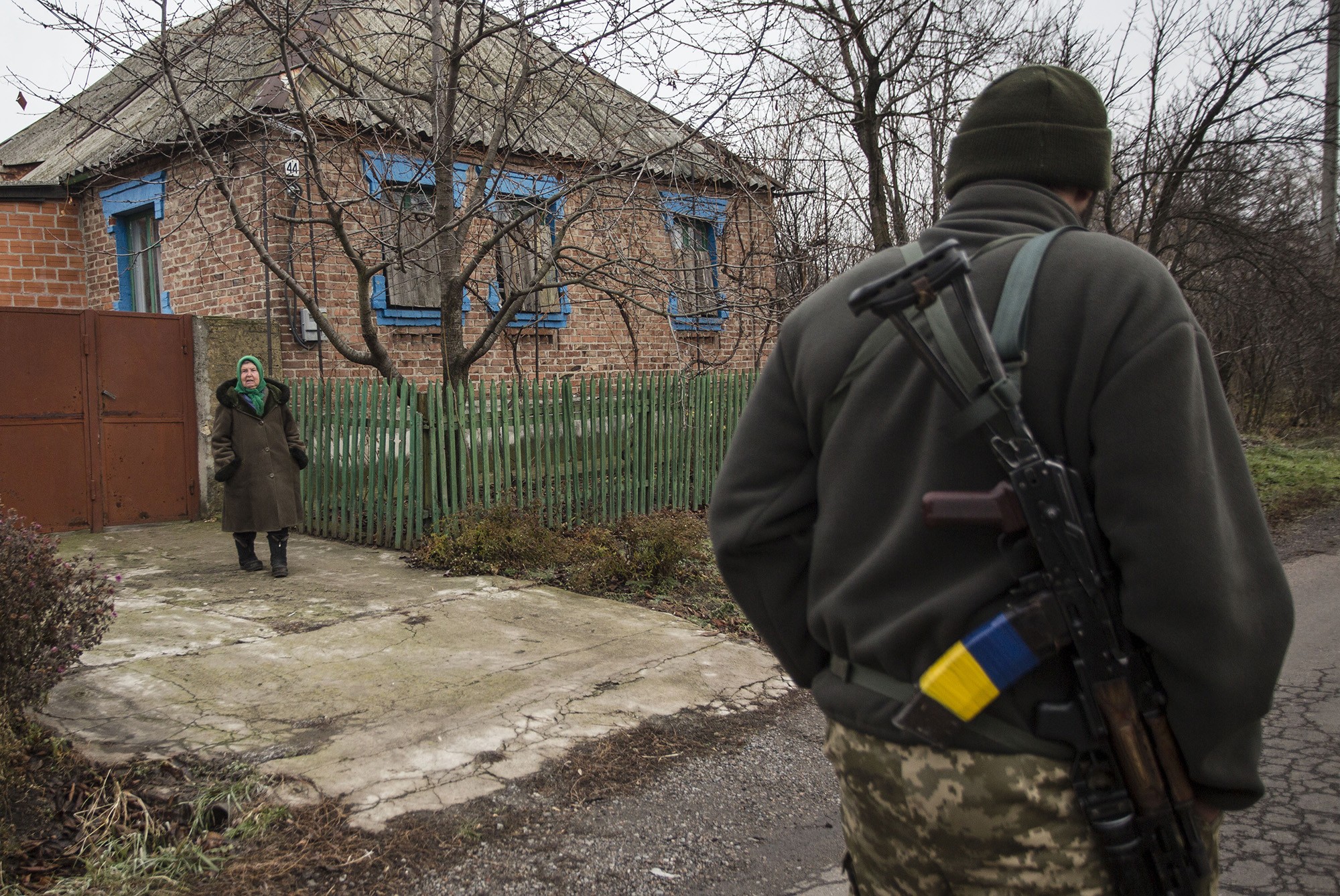VERKHNIOTORETSKE, Ukraine – Every day some 70 residents of Ukrainian-controlled Verkhniotoretske cross the war’s front line to go to work in Yasynuvata, a big railway junction city of 37,600 residents under the control of Russian-backed separatists.
Most of them work at the state-run Ukrzaliznytsia railway company, and get salaries from Ukraine.
JOIN US ON TELEGRAM
Follow our coverage of the war on the @Kyivpost_official.
When crossing either by car, on foot or by bicycle, people show their passports to the soldiers, tiredly but obediently, at the final checkpoint. Over the more than 30 months of Russia’s war in eastern Ukraine, the locals have adapted to the new reality, and try to get the most out of it.
They register on both sides to get double pensions and humanitarian aid. They buy and resell products to make ends meet. They don’t speak about politics and pray for the end of shelling and free passage across the war front.
The war split Verkhniotoretske, a town in Donetsk Oblast about 670 kilometers southeast of Kyiv, into two parts — between Ukrainian government and Russian-separatist forces. Its population on Ukraine-controlled territory shrank from 4,300 people to just the 3,100 remaining now, the local authorities estimate.
The Kryviy Torets River bisects the town in several places, creating a picturesque rural scene, often marred, however, by the view of boarded-up windows, and sounds of shelling.
Some 100 houses in Verkhniotoretske remain in a gray zone, a territory some 550 meters wide between the last checkpoints of the Ukrainian troops and the Russian-backed separatists.
Nastia, 10, lives in one of these houses and crosses the Ukrainian checkpoint every day on her way to school. “It’s not easy, but what can we do,” said her grandmother, Tamara Ivanivna, who refused to give hers and Nastia’s last names for safety reasons.
Tamara Ivanivna, 78, lives in separatist-held Yasynuvata just 12 kilometers from Verkniotoretske because “it’s easier to get humanitarian aid there.”
In Yasynuvata, this small smiling elderly woman receives from the separatist authorities some $40 per month as her pension, which is paid in Russian rubles. She also plans to travel next week to Ocheretyne, a bigger town some 30 kilometers from Verkhniotoretske, to get registered for a Ukrainian pension as an internally displaced person (IDP).
Thousands of residents from the separatist-held cities have registered at the abandoned houses of Verkhniotoretske to receive the status of internally displaced persons and permission to cross the checkpoint freely.
“Many people got the IDP papers despite still living in Yasynuvata, Makiyivka and Donetsk,” said Dima, a local resident who refused to give his last name fearing retribution from the authorities.
Verkhniotoretske has a unique crossing point, without huge lines of people, border guards, state security and fiscal service officers. There are just the soldiers, who allow crossing the separation line only to people with local registration papers and to IDPs.
This gives the locals an opportunity to buy food on the Ukrainian side and re-sell it in the separatist-controlled zone, where the prices are at least two times higher. Dima says a piece of sausage costs some $3 in Ukrainian territory and $6 across the border, while one kilogram of lard is $2.20 on the Ukrainian side and about $5 on the separatist-controlled side.
The law bans the transfer of more than 50 kilograms of food per person across the frontline, so there are no trucks but just minivans, which frequently travel across the lines. Only soldiers and locals know what exactly is being carried in these vehicles.
One soldier said that smuggling used to exist in Verkhniotoretske before, but after his 72nd brigade was stationed in the town about a month ago, it was stamped out.
Many people also travel to Verkhniotoretske from the separatist side for some cheap food. The town has about a dozen of shops with various products. In one of them, the Kyiv Post saw cans of artificial black and red caviar produced in Rostov region in southern Russia.
Another shop used to sell a range of souvenirs with separatist symbolics before the Ukrainian soldiers made them stop.
The residents don’t argue with the soldiers. But most of them keep to Moscow time, by which the separatist side lives. They need to keep in mind the different time zones to pass through the checkpoints in good time. Verkhniotoretske has a curfew from 5 pm to 7 am.
The public minibuses to the closest Ukrainian town of Ocheretyne go once every two days, while there are daily marshrutkas (taxi buses) to separatist-held Yasynuvata.
The locals can’t avoid exposure to Russian propaganda since there is no Ukrainian TV in their town. They just have the separatist Union and Oplot channels and the Russian state-owned Rossia 1.
Despite President Petro Poroshenko and his close friend, Minister of Information Yuriy Stets, pledging to provide Ukrainian TV broadcasting all over the Ukrainian-controlled Donbas, even the Ukrainian soldiers in Verkhniotoretske have to watch Russian TV.
“This is disgraceful. It looks like someone is sabotaging (Ukrainian broadcasting) to keep these people under Russian influence,” said a military officer with the nom-de-guerre Barney.
Barney’s unit, based predominantly in the abandoned and massively looted people’s houses, regularly gets fired on by machine guns from the village of Chervony Partyzan, which used to be a part of Verkniotoretske before the war.
The greatest amount of damage to Verkhniotoretske occurred in August-September 2014, when Ukrainian and separatist forces fought fierce battles for control over Yasynuvata. The local City Hall and hospital were destroyed. The locals had to live without water supplies for a year, and without electricity for several months. The roads were closed even to vehicles with coffins, so people had to bury their dead relatives wrapped in carpets or plastic film.
Despite the City Hall now being based in a community center and a hospital occupying part of a school building, the town has revived, especially on days when humanitarian organizations come there.
On Nov. 28 several dozen residents were standing in the school building, waiting with vouchers for food to be delivered by the Czech charity group People in Need.
Some two hundred meters away was a truck of the charity foundation of Ukraine’s richest oligarch Rinat Akhmetov, which was delivering free food packages. The Akhmetov charity’s workers placed a sign with a warning that they would refuse aid to those who resell the charity food, try to get packages using the passports of their deceased relatives, or those who say abusive things about Akhmetov’s foundation.
With the first winter frosts having arrived, locals complain that soldiers have banned them from carrying cheap coal from separatist-controlled areas to heat their houses. “We made a list of 350 people who need coal, but only some 100 of them managed to buy it,” said Olga Shalneva, the town’s executive mayor.
Residents say that coal brought from Yasynuvata costs about $57 per ton, which is less than half the price of the coal mined in Ukraine-controlled parts of the Donbas. And they are irritated to observe every day that trains loaded with coal pass through their town from Yasynuvata to government-controlled Ukraine. The reverse trains carry wood used as pit props in the construction of coal mines.
While all passenger trains stopped traveling to the separatist areas in late 2014, the cargo train connection was only briefly interrupted.
Roman, a local resident who recently visited Donetsk, the provincial capital and now a separatist stronghold, said most of the businesses there are barely surviving, except for the coal mines – most of which belong to Akhmetov.
Roman refused to give his last name fearing for his safety.
He added that the mine workers receive their salary in Ukrainian bank accounts, and then somehow manage through mediators to withdraw money in Russian rubles from them, despite the fact that no banks are working in this zone.
“This is an interesting war,” said Roman. “Some lose, others gain.”
Kyiv post photojournalist Anastasia Vlasova contributed reporting to this story.
You can also highlight the text and press Ctrl + Enter


